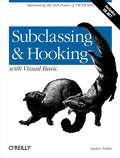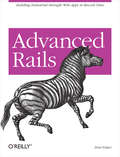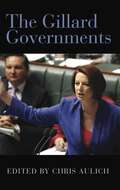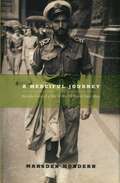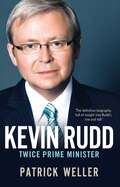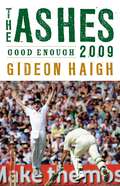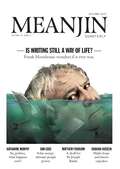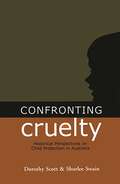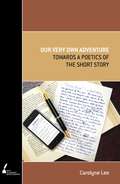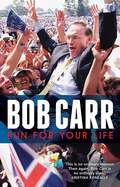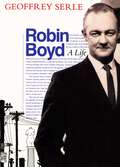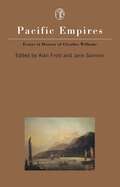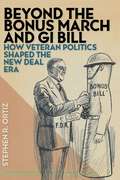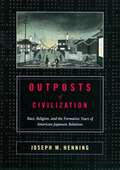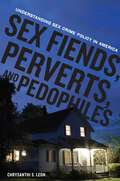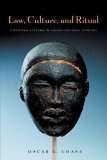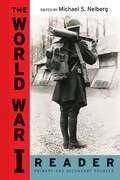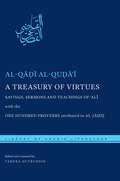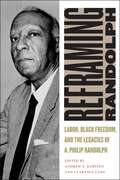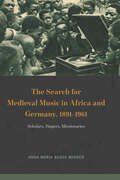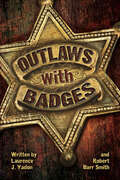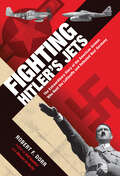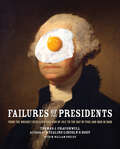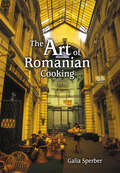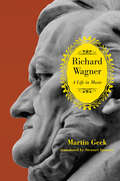- Table View
- List View
Subclassing and Hooking with Visual Basic: Harnessing the Full Power of VB/VB.NET
by Stephen TeilhetSubclassing & Hooking with Visual Basic offers developers a unique way to customize Windows behavior.Windows is a message-based system. Every action you request creates one or more messages to carry out the action. These messages are passed between objects and carry with them information that gives the recipient more detail on how to interpret and act upon the message.With Subclassing and the Windows hooking mechanism ("hooks"), you can manipulate, modify, or even discard messages bound for other objects within the operating system, in the process changing the way the system behaves. What kinds of results can you achieve using the power of subclassing and hooking? Here are just a few of the possibilities:Determine when a window is being activated or deactivated and respond to this change.Display descriptions of menu items as the mouse moves across them.Disallow a user to move or resize a window.Determine where the mouse cursor is and respond accordingly.Determine when the display resolution has been changed.Monitor the system for a low system resource condition.Modify or disallow keystrokes sent to a window or a control.Create an automated testing application.Determine when an application is idle.Along with this power comes responsibility; Windows is very unforgiving if subclassing and hooking are used incorrectly. Subclassing & Hooking with Visual Basic demonstrates the various techniques for intercepting messages bound for one or more windows or controls: the intercepted message can be left in its original state or modified; afterwards, the message can be sent to its original destination or discarded.For both VB 6 and VB.NET developers, Subclassing & Hooking with Visual Basic opens up a wealth of possibilities that ordinarily would be completely unavailable, or at least not easy to implement.
Advanced Rails: Building Industrial-Strength Web Apps in Record Time
by Brad EdigerReady to go to the next level with Rails? From examining the parts of Ruby that make this framework possible to deploying large Rails applications, Advanced Rails offers you an in-depth look at techniques for dealing with databases, security, performance, web services and much more.Chapters in this book help you understand not only the tricks and techniques used within the Rails framework itself, but also how to make use of ideas borrowed from other programming paradigms. Advanced Rails pays particular attention to building applications that scale -- whether "scale" means handling more users, or working with a bigger and more complex database. You'll find plenty of examples and code samples that explain:Aspects of Ruby that are often confusing or misunderstoodMetaprogrammingHow to develop Rails plug-insDifferent database management systemsAdvanced database features, including triggers, rules, and stored proceduresHow to connect to multiple databasesWhen to use the Active Support library for generic, reusable functionsSecurity principles for web application design, and security issues endemic to the WebWhen and when not to optimize performanceWhy version control and issue tracking systems are essential to any large or long-lived Rails projectAdvanced Rails also gives you a look at REST for developing web services, ways to incorporate and extend Rails, how to use internationalization, and many other topics. If you're just starting out with rails, or merely experimenting with the framework, this book is not for you. But if you want to improve your skills with Rails through advanced techniques, this book is essential.
Gillard Governments
by Chris AulichThe years 2010 to 2013 saw a remarkable period in Australian political history: Julia Gillard became Australia's first female prime minister after she successfully staged a leadership challenge to Prime Minister Kevin Rudd. A few months later she led her party to the 2010 federal election, and subsequently steered through seventeen days of negotiation with three independent members to successfully form her second, but minority, government. Yet, three years and three days later, she was overthrown by the very man she had originally dethroned. In this book, expert contributors consider the turbulence of that period and reflect on the Gillard governments' policy-setting, institutional and political legacies. In particular, they consider the issue of Gillard's leadership of a minority government and the arrangements needed to work with the Greens and independents to achieve Labor policies in the parliament. A recurring theme raised by many of the authors relates to the many distractions that prevented Gillard and Labor from gaining popular traction during the period. The book gives particular attention to Gillard as a female leader and the relentless campaign of denigration that pursued her, drawing conclusions about the fate of many women who assume positions of significant power in the Australian community. The Gillard Governments has been produced by the ANZSOG Institute for Governance at the University of Canberra. It is the eleventh in a series of books on successive Commonwealth administrations. Each volume has provided a chronicle and commentary of major events, policies and issues that have dominated successive administrations since 1983.
Merciful Journey
by Marsden HordernIn 1939 Marsden Hordern's mother refused to sign the paper allowing her seventeen-year-old son to fight overseas with the Royal Australian Air Force. 'I did not rear you to be killed in an aeroplane,' she said. 'Join the navy.' He took her advice and in doing so determined his future. In small patrol boats, Fairmiles and a Harbour Defence Motor Launch, he patrolled the shores of Japanese-held territory, assisted beleaguered commandos in Timor, and was finally caught up in the drama of collecting Japanese prisoners of war from the islands. A Merciful Journey presents a vivid and compelling account of Hordern's life from a happy childhood growing up in Sydney during the Great Depression, to his years serving in the Royal Australian Navy from 1942 to 1947. Drawing on the letters and journals he wrote at the time, Hordern engagingly recounts his triumphs and disasters as a naval officer, detailing his rise from a young and callow sub-lieutenant to a lieutenant in command of his own ship. He recalls his hopes and fears, and, in the face of the horrors of war, reveals an appealing enthusiasm for new experiences and a growing love of the sea. A Merciful Journey is a delightful memoir of a young man's coming of age in wartime.
Kevin Rudd: Twice Prime Minister
by Patrick WellerIt was a very different Kevin Rudd who returned to office in 2013. Kevin 07 was a fresh face and a new image: the convivial, Mandarin-speaking nerd who seemed so different from past leaders and who held so much potential. By 2013 Rudd retained some of his popularity but none of his novelty. The Opposition could say nothing derogatory about him that his colleagues had not already said. A series of policy grenades had to be defused. His second term was to be short, brutal and nasty. Yet, despite his defeat, Kevin Rudd was an unusual Labor leader and prime minister. Political scientist and biographer Patrick Weller spent several years observing and talking to Rudd and the people around him to explain how one person came to the job and sought to meet its demands. Weller takes us back to Rudd's boyhood in Nambour, son of a poor Queensland dairy farmer; to a member without a faction who led a bitterly factionalised party; to the only federal Labor leader to win a majority since Paul Keating in 1993; and to only the second prime minister since 1914 to be sworn in for a second time. This book has the advantage of interviews in 2008 and 2009 with ministers who were then supporters but who became diehard enemies. Weller also had the benefit of unique access to the Prime Minister's Office. His biography is a revealing account of the man who became prime minister - twice.
Ashes 2009: Good Enough
by Gideon HaighIn 2005, it was England's summer. In 2006-07, Australia had its revenge. 2009 loomed as the tightest of contests in Test cricket's longest-running rivalry, both countries in a race to rebuild in the first rematch since the end of the era of Warne, McGrath, Gilchrist and Hayden. Test cricket faced its own challenge: to demonstrate the game's potential for drama and dash over five days in an era increasingly accustomed to cricket in twenty-over instalments. Compiled day-by-day, The Ashes 2009 captures the season's whipsawing fortunes and the story of its defining duels: Ponting v Strauss, Clarke v Flintoff, Broad and Anderson v Hilfenhaus and Siddle, ready for readers while the embers of the Ashes are still warm.
Meanjin Vol 76, No 1
by Meanjin QuarterlyThe writer's life ... it's not an easy one. In the autumn issue of Meanjin Australian literary giant Frank Moorhouse describes the often-difficult path followed by those hardy souls who take 'the writer's oath'. For the man behind Days of Wine and Rage, Forty Seventeen, Dark Palace and the rest of the soon-to-be televised 'Edith Trilogy', it has been a lifelong journey studded with many books, prizes and much acclaim. Material rewards were never sought and perhaps that's for the best, for the writer's life is not a richly rewarded one. Moorhouse has some thoughts on how that might change. Our moment in politics is nothing if not fascinating and regular Meanjin essayist Katharine Murphy wonders just where politics might take us next (and here's a clue: she's not really sure). Tasmanian writer Ben Walter walks through the singed and sodden Tarkine and finds an ancient eco-system in eerie flux. Dan Cass details the increasing democratisation of the power that fuels our homes ... cheap solar is here, and nothing will ever be the same. There's fresh fiction from Jennifer Mills, Laura McPhee-Browne and more, a fine crop of new poetry and memoir that moves from bruising violence to wistful stargazing.
Confronting Cruelty: Historical Perspectives on Child Protection in Australia
by Dorothy Scott Shurlee SwainThe problem of child abuse seems to have escalated in recent years. Were there any 'battered babies' before the 1960s? Is the sexual abuse of children a recent phenomenon? The subject is often discussed in the media with little or no awareness that it has a long history. Confronting Cruelty examines our changing understanding of what cruelty is, the continuing neglect and abuse of children in our society, and the struggle between philanthropists, social workers and other professional groups for the right to identify and treat the children who are abused. Through the rich case records of the Children's Protection Society, Dorothy Scott and Shurlee Swain document a hundred years of child abuse, and explore how the community has responded to this ever-present social problem.
Our Very Own Adventure: Towards a Poetics of the Short Story
by Carolyne LeeOur Very Own Adventure demonstrates the main convention of the short story; specifically the heightened reader response that Carolyne Lee terms 'narratorial presence'. The intensity of the short story encourages readers to appropriate the fictive world, as rendered through one or more represented subjectivities in the narrative. Lee argues that this narratorial presence is the enabling effect of the tale's telling. Each chapter examines a group of stories (by authors such as William Faulkner, James Joyce, Charlotte Perkins Gilman, Ray Bradbury and Alice Munro) that share basic similarities, but where the narratorial presence differs due to differing techniques. Our Very Own Adventure reveals just how a story yields its meanings to a reader.
Run for Your Life
by Bob CarrAll author proceeds from this book are donated to help the children displaced by the Syrian civil war by funding humanitarian aid through the registered charity Australia for UNHCR. Most political memoirs are boring. Bob Carr tears up the rules. He plunges in, beginning with the despair of a young man pining for a political career, convinced he's going nowhere, then vaulting to the exhilaration of a premier who, on one day, saves a vast forest and unveils the country's best curriculum. He lashes himself for ignoring a cry from a prisoner in a cell and for a breach of protocol with a US Supreme Court judge. He considers talking to the leader of a notorious rape gang and celebrates winning power against the odds: a leader without kids or any interest in sport. He describes growing up in a fibro house without sewerage and a 'lousy education' that produced a lifetime appetite for self-learning. He is candid about dealing with the media, dining with royals, working for Kerry Packer. He reveals the secrets he learnt from Neville Wran. He is open about his adulation of Gough Whitlam. Floating above all is Bob Carr's idea of public service in a party, he says, that resembles an old, scarred, barnacled whale. In an era of bland politicians, here's one with personality true to his quirky self. Silence the jet skis! Balance the budget! Liberate the dolphins! Roll out the toll roads! Declare a million hectares of eucalypt wilderness! Be a politician of character.
Robin Boyd: A life
by Geoffrey SerleRobin Boyd, gifted architect, writer, teacher and social commentator, was the leading Australian propagandist for the International Modern Movement in architecture. In partnership with Roy Grounds and Frederick Romberg, he was noted for his innovative domestic buildings. Indeed the suburban home was often a focus of Boyd's thinking, writing and criticism, and in Australia's Home (1952) he provided the first substantial interpretation of Australia's architectural history. But the most popular and controversial of Boyd's nine books was The Australian Ugliness (1960) in which he scourged prevailing tastes in both architecture and popular culture.The sentiments he expressed here made him one of Australia's liveliest social critics. But his criticism sprang from patriotism and ambition for his country. Boyd was a very private man who left few personal letters or records. In this highly acclaimed and beautifully-illustrated book Geoffrey Serle writes predominantly about Boyd's work and public activities, allowing key selections from Boyd's writings to reveal the inner man.
Pacific Empires
by Frost, Alan Samson, JaneA new interest in European maritime exploration was aroused with the publication of the first volume of J. C. Beaglehole's edition of The Journals of Captain James Cook in 1955. In the forty-odd years since then, our knowledge of this exploration—and of the imperialism of which it was a part—has expanded enormously. We now recognise that the scientific endeavours, once seen as disinterested manifestations of the Enlightenment, actually had both strategic and commercial implications. And today much greater emphasis is given to the meanings fof early encounters for both the Natives of the Pacific islands and the Strangers from a European world. Glyndwr Williams has played a leading role in the development of these new insights. Pacific Empires offers stimulating contributions by a number of his colleagues, all authorities in their respective fields. It is a timely examination of historical understandings at the end of the twentieth century.
Beyond the Bonus March and GI Bill: How Veteran Politics Shaped the New Deal Era
by Stephen R. OrtizThe period between World Wars I and II was a time of turbulent political change, with suffragists, labor radicals, demagogues, and other voices clamoring to be heard. One group of activists that has yet to be closely examined by historians is World War I veterans. Mining the papers of the Veterans of Foreign Wars (VFW) and the American Legion (AL), Stephen R. Ortiz reveals that veterans actively organized in the years following the war to claim state benefits (such as pensions and bonuses), and strove to articulate a role for themselves as a distinct political bloc during the New Deal era.Beyond the Bonus March and GI Bill is unique in its treatment of World War I veterans as significant political actors during the interwar period. Ortiz’s study reinterprets the political origins of the "Second" New Deal and Roosevelt’s electoral triumph of 1936, adding depth not only to our understanding of these events and the political climate surrounding them, but to common perceptions of veterans and their organizations. In describing veteran politics and the competitive dynamics between the AL and the VFW, Ortiz details the rise of organized veterans as a powerful interest group in modern American politics.
Outposts of Civilization: Race, Religion, and the Formative Years of American-Japanese Relations
by Joseph M. HenningCivilization and progress, Gilded Age Americans believed, were inseparable from Anglo-Saxon heritage and Christianity. In rising to become the first Asian and non-Christian world power, Meiji Japan (1868-1912) challenged this deeply-held conviction, and in so doing threatened racial and cultural hierarchies central to American ideology and foreign policy. To reconcile Japan's stature with American notions of Western supremacy, both nations embarked on an active campaign to construct an identity for the Japanese which would recognize Japan's progress and abilities without threatening Americans' faith in white, Christian superiority. Japanese efforts included reassurances in diplomatic exchanges and in the American press that their nation adhered to the central tenets of Western civilization, namely constitutional government, freedom of religion, and open commerce. Many anxious Americans eagerly accepted such offerings, and happily re-conceived the Japanese as adoptive Anglo-Saxons. As with the best new work in diplomatic history, in Outposts of Civilization Henning considers culture to be integral to understanding foreign relations. Thus in addition to official documents and press reports, he examines American missionaries' writings on the Japanese, and American and Japanese art and literature produced during the Gilded Age. In exploring the delicate and deliberate process of identity construction, and how these discourses on race and progress resonated throughout the twentieth century, Henning has produced a fascinating and important study of American-Japanese relations.
Sex Fiends, Perverts, and Pedophiles: Understanding Sex Crime Policy in America
by Chrysanthi S. LeonFrom Megan’s Law to Jessica’s Law, almost every state in the nation has passed some law to punish sex offenders. This popular tough-on-crime legislation is often written after highly-publicized cases have made the gruesome rounds through the media, and usually features harsh sentences, lifetime GPS monitoring, a dramatic expansion of the civil commitment procedures, and severe restrictions on where released sex offenders may live. In Sex Fiends, Perverts, and Pedophiles, Chrysanthi Leon argues that, while the singular notion of the sexual boogeyman has been used to justify these harsh policies, not all sex offenders are the same and such ‘one size fits all’ policies can unfairly punish other offenders of lesser crimes, needlessly targeting, sometimes ostracizing, citizens from their own communities.While many recognize that prison is not the right tool for every crime problem, Leon compellingly argues that the U.S. maintains a one-size-fits-all approach to sexual offending which is undermining public safety. Leon explains how we’ve reached this point—with a large incarcerated sex offender population, many of whom will be released in the coming years with multiple barriers to their success in the community, and without much expertise to guide them or to guide those who are charged to help them. Leon argues that we cannot blame the public, nor even the politicians, except indirectly. Instead, we might blame the institutions we charge with making placement decisions and with the experts—both those who have chosen to work in the field and those who have caused its marginalization. Ultimately, Leon shows that when policies intended for the worst offenders take over, all of us suffer.
Law, Culture, and Ritual: Disputing Systems in Cross-Cultural Context
by Oscar G ChaseDisputing systems are products of the societies in which they operate—they originate and mutate in response to disputes that are particular to specific social, cultural, and political contexts. Disputing procedures, therefore, are an important medium through which fundamental beliefs, values, and symbols of culture are communicated, preserved, and sometimes altered. In Law, Culture, and Ritual, Oscar G. Chase uses interdisciplinary scholarship to examine the cultural contexts of legal institutions, and presents several case studies to demonstrate that the processes used for resolving disputes have a cultural origin and impact.Ranging from the dispute resolution practices of the Azande, a technologically simple, small-scale African society, to the rise of discretionary authority in civil litigation in America, Chase challenges the claims of some scholars that official dispute systems are more reflective of the interests and preferences of elite professionals than of the cultures in which they are embedded.
The World War I Reader
by Michael S. NeibergAn accessible compilation of primary and secondary scholarship on the frequently misunderstood First World WarAlmost 100 years after the Treaty of Versailles was signed, World War I continues to be badly understood and greatly oversimplified. Its enormous impact on the world in terms of international diplomacy and politics, and the ways in which future military engagements would evolve, be fought, and ultimately get resolved have been ignored. With this reader of primary and secondary documents, edited and compiled by Michael S. Neiberg, students, scholars, and war buffs can gain an extensive yet accessible understanding of this conflict. Neiberg introduces the basic problems in the history of World War I, shares the words and experiences of the participants themselves, and, finally, presents some of the most innovative and dynamic current scholarship on the war.Neiberg, a leading historian of World War I, has selected a wide array of primary documents, ranging from government papers to personal diaries, demonstrating the war’s devastating effect on all who experienced it, whether President Woodrow Wilson, an English doughboy in the trenches, or a housewife in Germany. In addition to this material, each chapter in The World War I Reader contains a selection of articles and book chapters written by major scholars of World War I, giving readers perspectives on the war that are both historical and contemporary. Chapters are arranged chronologically and by theme, and address causes, the experiences of soldiers and their leaders, battlefield strategies and conditions, home front issues, diplomacy, and peacemaking. A time-line, maps, suggestions for further reading, and a substantive introduction by Neiberg that lays out the historiography of World War I round out the book.
A Treasury of Virtues: Sayings, Sermons, and Teachings of 'Ali, with the One Hundred Proverbs attributed to al-Jahiz (Library of Arabic Literature #26)
by al-Qāḍī al-QuḍāʿīInsights into a life of integrity by a master of Arabic eloquenceA Treasury of Virtues is a collection of sayings, sermons, and teachings attributed to 'Ali ibn Abi Talib (d. 40/661), the cousin and son-in-law of the Prophet Muhammad, the first Shia Imam and the fourth Sunni Caliph. An acknowledged master of Arabic eloquence and a sage of Islamic wisdom, 'Ali was renowned for his eloquence: his words were collected, quoted, and studied over the centuries, and extensively anthologized, excerpted, and interpreted.Of the many compilations of 'Ali’s words, A Treasury of Virtues, compiled by the Fatimid Shafi'i judge al-Quda'i, arguably possesses the broadest compass of genres and the largest variety of themes. Included are aphorisms, proverbs, sermons, speeches, homilies, prayers, letters, dialogues, and verse, all of which provide instruction on how to be a morally upstanding human being. The shorter compilation included here, One Hundred Proverbs, is attributed to the eminent writer al-Jahiz (d. 255/869). This volume presents the first English translation of both of these important collections.A bilingual Arabic-English edition.
Reframing Randolph: Labor, Black Freedom, and the Legacies of A. Philip Randolph (Culture, Labor, History #12)
by Andrew E. Kersten Clarence LangAtone time, Asa Philip Randolph (1889-1979) was a household name. As president ofthe all-black Brotherhood of Sleeping Car Porters (BSCP), he was an embodimentof America’s multifaceted radical tradition, a leading spokesman for BlackAmerica, and a potent symbol of trade unionism and civil rights agitation fornearly half a century. But with the dissolution of the BSCP in the 1970s, theassaults waged against organized labor in the 1980s, and the overall silencingof labor history in U.S. popular discourse, he has been largely forgotten amonglarge segments of the general public before whom he once loomed so large.Historians, however, have not only continued to focus on Randolph himself, buthis role (either direct, or via his legacy) in a wide range of social,political, cultural, and even religious milieu and movements. The authors of Reframing Randolph have taken Randolph’s dusty portrait down fromthe wall to reexamine and reframe it, allowing scholars to regard him in new,and often competing, lights. This collection of essays gathers, for the veryfirst time, many genres of perspectives on Randolph. Featuring both establishedand emergent intellectual voices, this project seeks to avoid both hagiographyand blanket condemnation alike. The contributors represent the diverse waysthat historians have approached the importance of his long and complex careerin the main political, social, and cultural currents of twentieth-centuryAfrican American specifically, and twentieth-century U.S. history overall. Thecentral goal of Reframing Randolph isto achieve a combination of synthetic and critical reappraisal.
The Search for Medieval Music in Africa and Germany, 1891–1961: Scholars, Singers, Missionaries (New Material Histories of Music)
by Anna Maria BergerThis innovative book reassesses the history of musicology, unearthing the field’s twentieth-century German and global roots. In the process, Anna Maria Busse Berger exposes previously unseen historical relationships such as those between the modern rediscovery of medieval music, the rise of communal singing, and the ways in which African music intersected with missionary work in the German colonial period. Ultimately, Busse Berger offers a monumental new account of the early twentieth-century music culture in Germany and East Africa. ?The book unfolds in three parts. Busse Berger starts with the origins of comparative musicology circa 1900, when early proponents used ideas from comparative linguistics to test whether parallels could be drawn between nonwestern and medieval European music. She then turns to youth movements of the era—the Wandervogel, Jugendmusikbewegung, and Singbewegung—whose focus on joint music making influenced many musicologists. Finally, she considers case studies of Protestant and Catholic mission societies in what is now Tanzania, where missionaries—many of them musicologists and former youth-group members—extended the discipline via ethnographic research and a focus on local music and communities. In highlighting these long-overlooked transnational connections and the role of global music in early musicology, Busse Berger shapes a fresh conception of music scholarship during a pivotal part of the twentieth century.
Outlaws with Badges
by Robert Barr Smith Laurence J. YadonIn the Old West, upright lawmen were scarce. Often, the men who were bound to keep the peace were just as corrupt as the men they pursued. These dishonest deputies chose their professions based on convenience rather than conviction, and the most revered were often the wiliest. These men held grudges, ruled with violence, and instilled fear in all who crossed their paths.Offered here is an untainted perspective of these outlaws that discerns fact from myth. Legends such as Wyatt Earp and renegade lawman Dirty Dave Rudabaugh are presented as real men with quirks and weaknesses. The authors deconstruct not only the Dalton's last stand in Coffeyville, Kansas, and the gunfight at the OK Corral-among other famous heists-but also the triumphs and flaws of their organizers. The Old West's former outlaws turned good, former lawmen gone bad, and honorable citizens who moonlighted as robbers and rustlers are presented in these pages.ABOUT THE AUTHORS Laurence J. Yadon is an attorney, mediator, and arbitrator who presents on various legal subjects, Oklahoma history, and crime history. He has assisted the Department of Justice in litigation matters before his local United States district court and has successfully argued before the United States Supreme Court. He is the co-author of Pelican's 100 Oklahoma Outlaws, Gangsters, and Lawmen: 1839-1939; 200 Texas Outlaws and Lawmen: 1835-1935; Ten Deadly Texans; Old West Swindlers; and Arizona Gunfighters. Yadon resides in Tulsa, Oklahoma.Robert Barr Smith is a History Channel commentator and the author of more than thirty articles and five books on the American Old West. He has edited several titles, including Pelican's 100 Oklahoma Outlaws, Gangsters, and Lawmen: 1839-1939; 200 Texas Outlaws and Lawmen: 1835-1935; Ten Deadly Texans; and Arizona Gunfighters, and he co-authored Old West Swindlers, also published by Pelican. A retired colonel, Smith served more than twenty years in the Judge Advocate General's Corps and earned the Bronze Star and the Legion of Merit while serving in the United States Army. He is a former deputy attorney general of California and a retired professor of the University of Oklahoma College of Law. He lives in Norman, Oklahoma.Dirty Dave Rudabaugh � Hoodoo Brown and Company � Henry Newtown Brown � John Larn � Bob and Grat Dalton � Wyatt Earp � King Fisher � Ben Thompson � Henry Plummer � Joseph Alfred Slade � Doc Middleton � Frank M. Canton
Fighting Hitler's Jets: The Extraordinary Story of the American Airmen Who Beat the Luftwaffe and Defeated Nazi Germany
by Robert F. DorrFighting Hitler's Jets brings together in a single, character-driven narrative two groups of men at war: on one side, American fighter pilots and others who battled the secret “wonder weapons” with which Adolf Hitler hoped to turn the tide; on the other, the German scientists, engineers, and pilots who created and used these machines of war on the cutting edge of technology. Written by Robert F. Dorr, renowned author of Zenith Press titles Hell Hawks!, Mission to Berlin, and Mission to Tokyo, the story begins with a display of high-tech secret weapons arranged for Hitler at a time when Germany still had prospects of winning the war. It concludes with Berlin in rubble and the Allies seeking German technology in order to jumpstart their own jet-powered aviation programs. Along the way, Dorr expertly describes the battles in the sky over the Third Reich that made it possible for the Allies to mount the D-Day invasion and advance toward Berlin. Finally, the book addresses both facts and speculation about German weaponry and leaders, including conspiracy theorists’ view that Hitler escaped in a secret aircraft at the war’s end. Where history and controversy collide with riveting narrative, Fighting Hitler’s Jets furthers a repertoire that comprises some of the United States’ most exceptional military writing.
Failures of the Presidents: From the Whiskey Rebellion and War of 1812 to the Bay of Pigs and War in Iraq
by M. William Phelps Thomas J. CraughwellTake a humbling journey through America’s proud history with this engaging and informative look at the nation’s most epic presidential blunders.Failures of the Presidents recounts twenty of the worst bad calls to come out of the executive office, ranging from the nation’s birth to the start of the twenty-first century. Author Thomas Craughwell begins with George Washington, who tried to pay for the Revolutionary War with a tax on whiskey—a choice that sparked the newly formed country’s first bloody rebellion.Centuries later, another George—the second President Bush—was convinced that Iraq was hiding weapons of mass destruction. His invasion of the country resulted in a protracted, deadly, and costly war that gave a serious blow to American credibility around the world.Between these episodes, there were many other regrettable, embarrassing, or downright disastrous mistakes made by residents of the White House—the worst of which are explored in this book.
The Art of Romanian Cooking
by Galia SperberDiscover the diverse range of Romanian home cooking in this volume featuring memories and family recipes passed down across generations. Romania&’s landscape combines soaring mountains with the Danube River Delta—just as its history blends together Ancient Romans, Goths, Hungarians, Huns, Bulgarians, Tartars, and Turks. The Art of Romanian Cooking celebrates this rich heritage with a variety of dishes that make inventive use of commonly available ingredients. Thinking back on her mother&’s and grandmother&’s cooking, Galia Sperber was inspired to share some of the family's favorite recipes, paired with reminiscences of her native country and family meals. This volume features appetizers such as papanasi prajiti (savory fried cheese patties) or croquette din salam (salami croquettes); hearty soups ranging from creamy potato to the six variations of borscht; seafood dishes such as Russian-style trout; classic meat recipes for chicken, duck, veal, and beef; and irresistible dessert like the Othello torte and rose jam.
Richard Wagner: A Life in Music
by Martin Geck“[An] intriguing exploration of the composer’s life and thought as exemplified by his music. An excellent biography.” —Library JournalBest known for the four-opera cycle The Ring of the Nibelung, Richard Wagner (1813–83) was a conductor, librettist, theater director, and essayist, in addition to being the composer of some of the most enduring operatic works in history. Though his influence on the development of European music is indisputable, Wagner was also quite outspoken on the politics and culture of his time. His ideas traveled beyond musical circles into philosophy, literature, theater staging, and the visual arts. To befit such a dynamic figure, acclaimed biographer Martin Geck offers here a Wagner biography unlike any other, one that strikes a unique balance between the technical musical aspects of Wagner’s compositions and his overarching understanding of aesthetics. A landmark study of one of music’s most important figures“People who would like to know more about Wagner, and people who have loved his music for years . . . will find a great deal in this book to enjoy and to admire.” —Tablet“Geck describes a Wagner who is grounded, focused and even cautious, a savvy realist and ironist rather than a flamboyant, flailing ideologue . . . Suffused with his readings of contemporary productions of the operas, Geck’s musical analyses are succinct and superb” —New York Times“As an editor of Wagner’s Complete Works, Geck brings a deep familiarity with the composer to his task.” —Weekly Standard“A thoroughly approachable yet consistently provocative study.” —Thomas S. Grey, editor of The Cambridge Companion to Wagner
